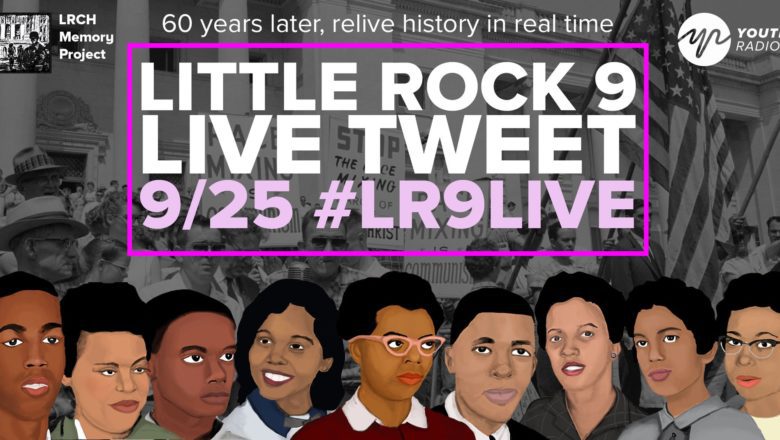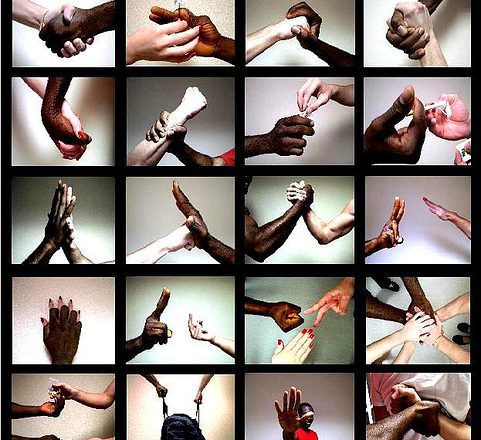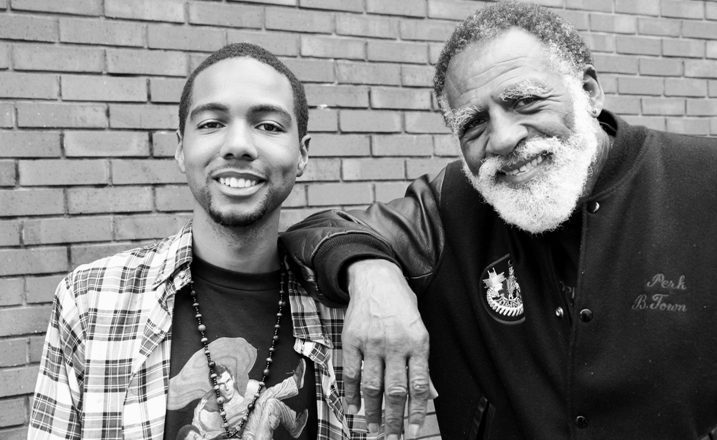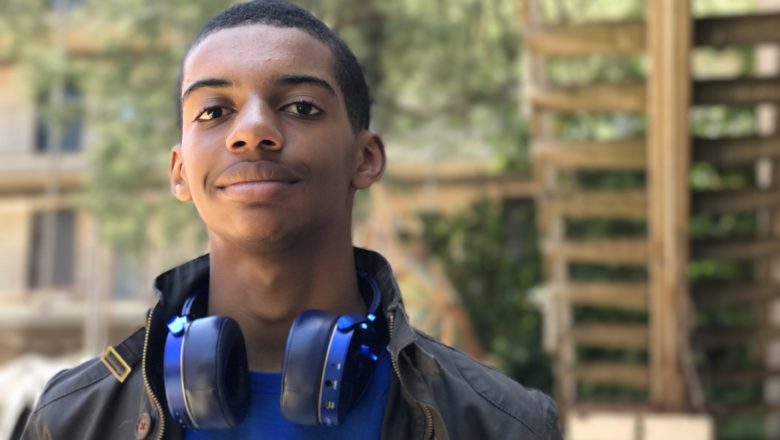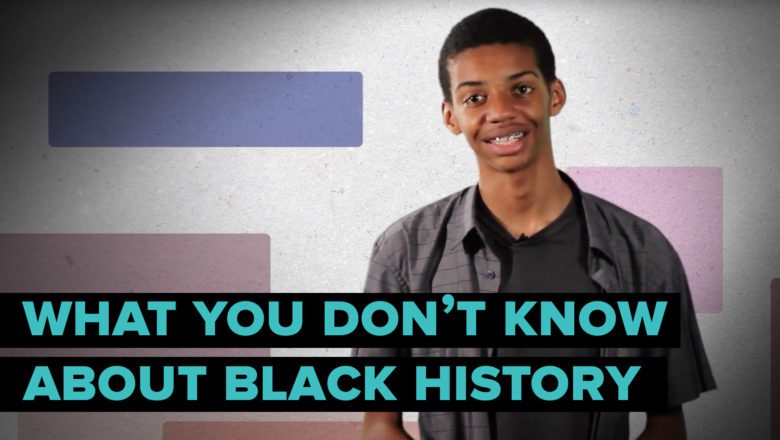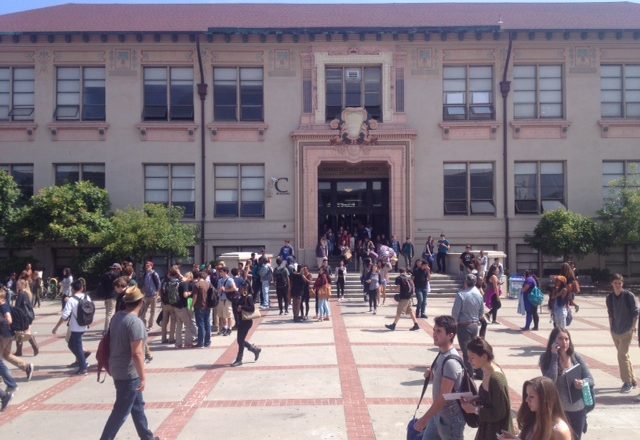Sixty years ago, nine black teenagers enrolled in the all-white Central High School, after the Supreme Court decided to strike down racial segregation laws. They went down in history as the Little Rock Nine. Youth Radio’s Zia Tollette is a junior at Central High. She looks back at the Little Rock Nine’s sacrifices, which made her own attendance at Central High possible.
When I was younger, the Little Rock Nine were recurring characters in my life. Growing up, there was even a painting of them in my house that hung over one of the windows. When I was little I would look up at it as my parents would tell me stories about the Nine and their sacrifices.
“It truly devastated our family unit,” said Phyllis Brown. She’s the sister of Minnijean Brown, one of the Little Rock Nine.
Every year at Central High, my classmates and I revisit the story of the Nine, conducting oral history interviews with elders about civil rights here in Little Rock.
In a news clip dated back to 1957, a reporter asks a white Central High student, “What about you sir, do you think the colored students will show up?”
The student answers, “Well, if I have anything to do with it, they won’t show up.”
Phyllis Brown says her sister and the other Little Rock Nine students were harassed, threatened, kicked, spat upon, called names, and pushed down the steps by other students at Central High. “It should have been a natural thing,” Brown said. “Like, ‘We’re just going to school.'”

It’s crazy when I think about how the Little Rock Nine were my age–just teenagers–when they were met with this angry, racist mob at my school. The governor of Arkansas at the time even called in the National Guard to keep the nine out. President Dwight Eisenhower eventually had to call in the 101st Airborne Division to protect the black teenagers.
Eisenhower said at the time, “Such an extreme situation has been created in Little Rock. This challenge has to be met and with such measures as will preserve to the people in the whole, their lawfully protected rights in a climate permitting their free and fair exercise.”
Looking back, Phyllis Brown asks, “Why does it take an army to escort nine compared to 2500 students at Central to go to school? So what happens is that your everyday aspect of life is disrupted and corrupted.”
It’s been 60 years since the Little Rock Nine broke color barriers in education. But, living here, it doesn’t feel that long ago. Central is desegregated. But, like many schools across the nation, it’s not exactly integrated. These divisions are clear cut: black students eat in the cafeteria, white students eat on the patio. Central has AP, or advanced placement, classes, but those classes tend to be mostly white.
As a biracial black and white female, it can feel like I exist between two worlds. Even though people of different races go to the same schools in 2017, we are not necessarily living in the same version of America. So every year, when my classmates and I revisit the story of the Little Rock Nine, I don’t just celebrate the freedoms we’ve won. I think about the battles still to come.
To see more about Youth Radio’s partnership with Central High School in Arkansas honoring the teens of Little Rock Nine, visit our website and check out a Twitter re-enactment of the events of 60 years ago.
Join Us to Relive Civil Rights History
60 years later, we revisit the pivotal role the Little Rock Nine played in the Civil Rights Movement, and how it resonates today. Follow along on Twitter #LR9Live.
Racial Separation Still in Schools?
When living in the progressive, liberal bay area, we tend to think that racial segregation is irrelevant to us. However, recently it has become apparent to me that at my school, there is definitely a sense of internalized segregation within the student body.
Coming Of Age In The Era Of Oscar Grant And Trayvon Martin
I was the same age as Trayvon Martin when he was killed. It was the first shooting case that got national attention where I felt connected — like I could relate.
How Racial Bias Plays Out In Preschool
Does racial profiling start as early as preschool? A recent study shows even preschool teachers exhibit racial bias. Youth Radio’s Myles Bess has the scoop.
Race/Related: My Mom Knew I’d Get Stopped By The Police, So She Made Me Practice
Having to spend my childhood rehearsing for the day a police officer would pull me over may sound scary. And I’m aware it’s not something parents of all races feel the need to teach their kids. But the day it actually happened, I was grateful that my mom made sure I was ready.
What You Don’t Know about Black History
What happens when all of Black history is crammed into one month? Certain stories are lost.
Black Girls In Confinement Face Barriers To Education
Over the course of 14 months, Dr. Monique Morris took a close look at the educational experiences of confined black girls in the California Bay Area juvenile system. Youth Radio’s Darelle Brown interviewed Dr. Morris about her findings.
My Experience At A Continuation School
This school year, I transferred to a continuation school to make up some credits. I thought the teachers would be more supportive since they had fewer students.
Commemorating Civil Rights, But Not Celebrating Too Much
I’m 19 years old, and I’m always questioning if my actions are really worth anything. It’s hard for me to…
Searching For Reasons Behind Segregation At Berkeley High
I’m in the International Baccalaureate (IB) program — also called the International High School — perceived by students as being the most rigorous program… as well as the whitest.
